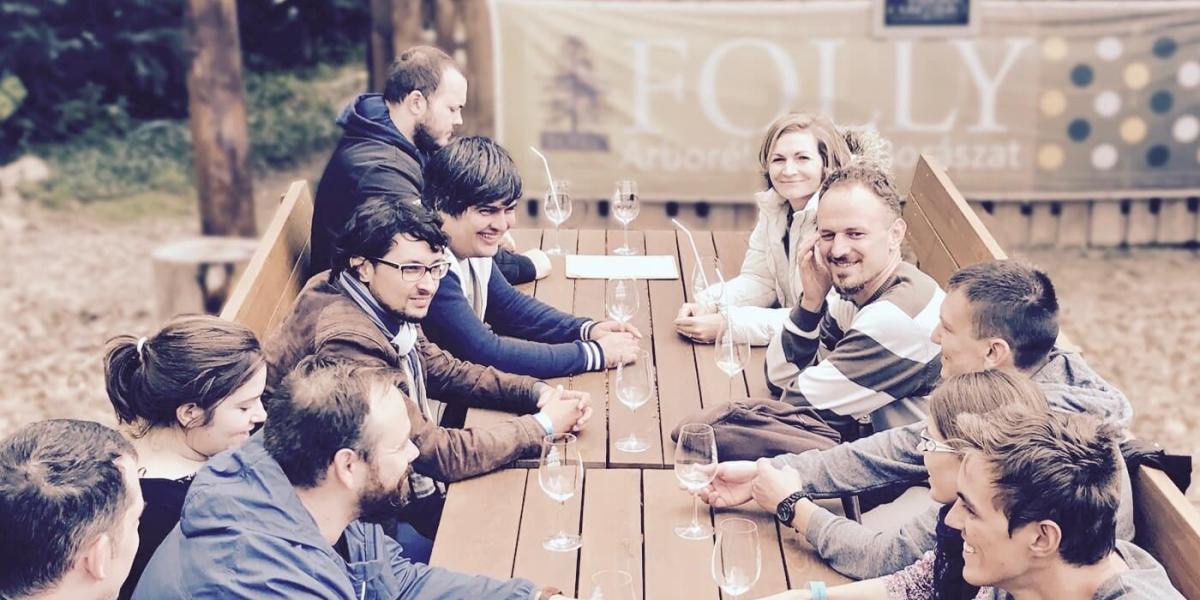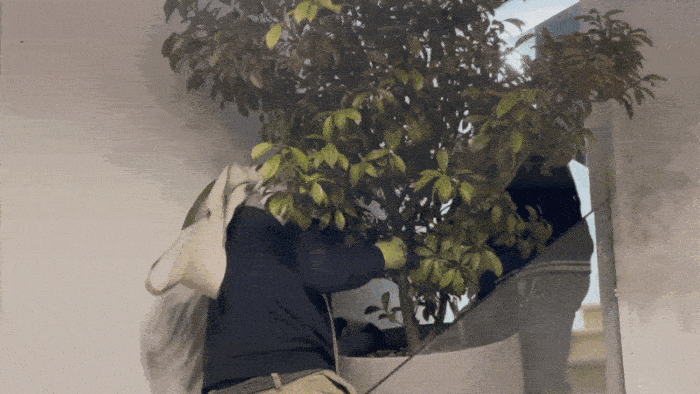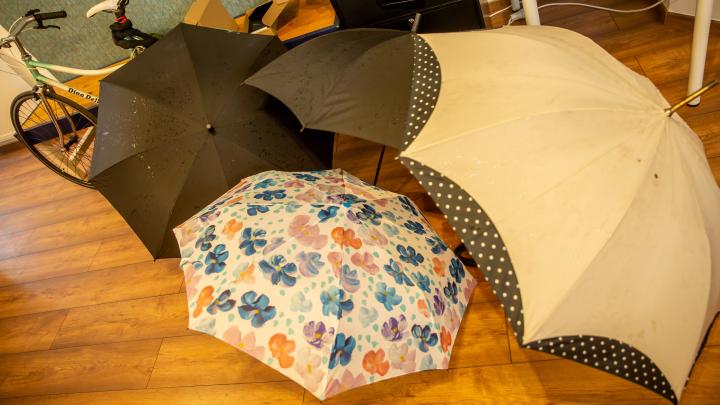
It was early September, late afternoon. The team and I were drinking wine at the Folly Arboretum in Badacsonytomaj. To be more precise, Aniko and I were swirling and smelling the wine glasses while we were inevitably sampling the otherwise excellent house brews as we drove the cars back to the team-building hostel. We started with a couple of light wines. At the same time, the conversation went on about what Integral Vision's "wine" is, what carries its reputation the way the Arboretum's reputation travels on the Folly wines label. After all, visitors take the wine home, and it sits on the weekend, or better yet, holiday table, both providing a new experience and a reminder of where it comes from.
As the glasses of wine and syrup piled up on the table and the wine glasses ran out, the talk turned to the personal connection that characterizes IV's habits, both between team members and in the customer relationship. We talked about how standup meetings, retrospectives, the rhythm of the demo, and close client relationships can all be exercises in listening, understanding, and acceptance if you are truly present.
The conversation turned to improve the quality of connection in standup meetings. Unlike my ordinary days, I offered to drop in for a couple of mornings to watch the standups. I distinctly remember Ancha turning to me and saying that would be cool and help.
At the time, Ancsa was the team's voice, not Kulcsi, the manager. And that was perfectly fine. It was the first time an agreement had been made between the group and me on a task that didn't come through the manager. It's been a long time coming. Over the last three years, my role as an organizational coach has been honed. Initially, Kulcsi suggested the team, and I participated in my programs. And while it was never mandatory, there was a direction, a drift that could sometimes seem forced. Kulcsi would, of course, ask for feedback from others on my work, and on that, we would converge from time to time, the need would become more precise, and so would the solution I offered. But this was the first time that Kulcsi was not the team's voice to me.
Two weeks later, sitting in the office kitchen, I summarized my observations about the standups I visited. I was faced with a new dilemma. What the team orders, I deliver to the team. But what do I do with the comments that I could share as individual advice?
When an organizational developer is commissioned by the client - usually a manager - to review a process, he is also given the mandate to "advise" or at least "give feedback" to the subordinates. This power in the structure often forces unsolicited advice on others. It focuses not on changing the leader or collaboration but on moving change on the subordinate... In this case, the "advice" is given to someone who did not ask for it. This has been discussed retrospectively. Everyone has empowered me to provide personal feedback.
On the next demo day, I had an urge to force myself to work through the suggestions I had brought together. Well, that didn't work at all. I think the team didn't understand why I was pushing for processing. And I didn't understand when and what the team wanted to do with the feedback I had received. I felt I had to take care of the practical implementation. I finally let the issue go. And Zoli suggested considering some of the feedback as a guideline in principle. Since then, the team has offered two small changes to the standup.
In the last 2-to to three years, it's pretty trendy to talk and write about self-management, personal fulfillment, organic organizational functioning. I think you read a few case studies because these capabilities result from many years of actual reflection and learning by everyone in the organization. We experience a lot of this in IV. And over a long period in this personal and group learning process, we have experienced safety, vulnerability, strength, trust, surrender, acceptance, letting go. In the last two months, this has manifested itself in such a self-managing group ordering process.
I'm excited that I now have a more differentiated relationship with the team. Kulcsi is still the one with whom we discuss the business and timeframe of the assignment. Ultimately, he takes responsibility for the financial sustainability of the process. I feel that I have more freedom and responsibility to understand and respond to the team's needs directly. And now I have team members who pick up on issues and report back to me. Soon after Ancsa, I also received a theme from Zsuzsi, which we have worked on ever since. There are still stumbles in this new differentiation, which is sometimes uncomfortable. In the meantime, I am struck by how much my relationship with others is deepening. And what surprises me is that as a coach and facilitator, I am even more confident in maintaining the distance that is important for reflection. We grow together... how could we not.
Share with your friends!


